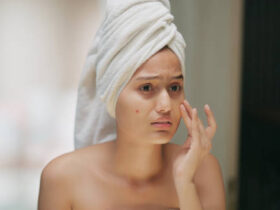As teenagers experience rapid changes in their bodies and emotions, understanding birth control becomes a crucial topic. Birth control for teens is not just about preventing pregnancy—it also plays a significant role in overall reproductive health. Alongside contraception, other important aspects include STD testing, physical development in teenagers, and visits to a pediatric clinic for guidance. This article explores various birth control options, their benefits, and what teenagers should consider when making informed decisions about their sexual health.
Exploring Different Birth Control Methods for Teens: What Are the Most Effective Options?
When choosing birth control for teens, it is essential to understand the various available methods. Here are some common and effective options:
- Birth Control Pills
- Taken daily, birth control pills help regulate hormones, reduce menstrual cramps, and prevent pregnancy.
- They do not protect against sexually transmitted diseases, making STD testing important.
- Condoms
- Condoms provide dual protection by preventing pregnancy and reducing the risk of STDs.
- Available for both males and females, they are a great option for teens engaging in sexual activity.
- Intrauterine Devices (IUDs)
- A long-term birth control option inserted by a healthcare provider.
- IUDs are highly effective and require minimal maintenance.
- Birth Control Implants
- A small rod placed under the skin that releases hormones to prevent pregnancy.
- Lasts for several years, making it a convenient choice.
- Birth Control Patches and Injections
- These methods provide hormonal protection without requiring daily attention.
- They need to be changed or administered regularly as per a doctor’s advice.
Why STD Testing Should Be a Priority Alongside Birth Control for Teens
While birth control methods help prevent pregnancy, they do not protect against sexually transmitted diseases. This is why STD testing is crucial for teens who are sexually active. Regular testing ensures early detection and treatment of infections, promoting better reproductive health. Visiting a pediatric clinic can help teens receive appropriate guidance on testing and prevention strategies.
The Impact of Physical Development in Teenagers on Birth Control Choices
The effectiveness and suitability of birth control methods can vary depending on the physical development in teenagers. Some factors that influence the choice of birth control include:
- Hormonal changes: Some teens may experience side effects from hormonal contraceptives.
- Menstrual cycle regularity: Certain methods can help regulate periods and ease cramps.
- Body weight and metabolism: Some birth control methods work differently based on an individual’s body composition.
A healthcare provider at a pediatric clinic can assess these factors and recommend the most suitable birth control method.
The Role of Pediatric Clinics in Providing Guidance on Birth Control for Teens
A pediatric clinic is a trusted place where teens can receive professional advice about birth control. Doctors and nurses provide:
- Confidential consultations about reproductive health.
- Information about different contraceptive options.
- STD testing and screenings.
- Support for both teens and their parents in making informed decisions.
Conclusion: Making Informed Choices About Birth Control for Teens
Birth control for teens is an essential aspect of reproductive health, helping them make responsible choices while protecting their well-being. Along with contraception, STD testing, physical development in teenagers, and professional guidance from a pediatric clinic are critical components of sexual health. By seeking accurate information and consulting healthcare providers, teens can confidently navigate their birth control options and ensure a healthier future.













